COVID-19 RESOURCES
Utah Department of Heritage & Arts
Supporting Our Communities Through Our Divisions
The Importance Of Culture
The COVID-19 pandemic has not spared the organizations and people we serve from the associated physical, emotional or economic traumas. It is a heartbreaking and challenging moment in time that will take more than individual grit to overcome.
As a department, we want to help everyone in our community survive, recover and, once again, thrive. While our efforts will include financial assistance, we also want to provide leadership guidance and emotional support. Through our seven divisions as well as our many community partners, we want to offer a network for peer advice. And when the world finally emerges from stay-at-home orders and businesses begin opening again, we want to celebrate gallery openings and summer concerts, museum exhibits and library storytimes, service groups and historical tours.
Earlier this year, our department followed the lead of the National Endowment for the Arts by giving employees a copy of Emily St. John Mandel’s “Station Eleven.” This novel, for those who haven’t read it, portrays a world 20 years removed from a devastating pandemic. Throughout the book, arts and culture — from Shakespeare plays to comic books to museums — play an important role because, as the narrator says, “survival is insufficient.”
Right now, those words matter. We will prevail, together. That is why we are providing these resources, to help all of us do more than simply survive. We hope you find them helpful, but if you need something else, please contact us.
Latest News & Advice
Stay Home. Stay Safe.
Save Summer.
The COVID-19 pandemic has upended daily life, in Utah as throughout the world. The impacts of this pandemic will not end when the spread slows and stay-at-home orders end. People will want human connection in settings large and small, indoor and outdoor, crowded and intimate.
Cultural groups, arts organizations, sports teams, museums and others can provide that connection. But we need everybody's help in this effort. We need everyone to stay at home as much as possible and practice social distancing when out of the house.
If we take these steps now, together, we may be able to share a hot dog at a baseball game, dance to live music, stroll through art galleries and laugh with our favorite comedians. We can join other Utahns at theaters and museums, soccer games and movies. All of this, we can do together.
We understand that this may be an audacious goal, but it may be practical. At the very least, it's something we can do together. We can try to save summer.
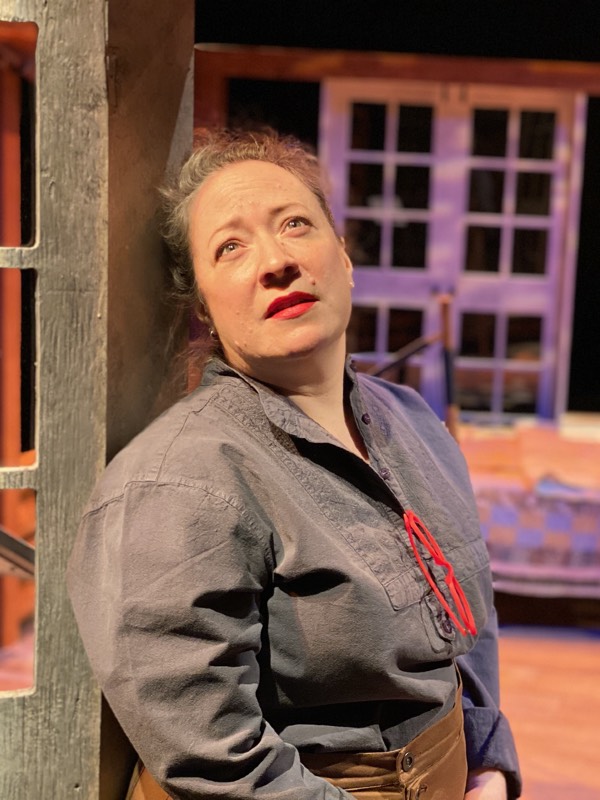
Division of Arts & Museums
The division, in partnership with the Utah Cultural Alliance, Utah Humanities, Utah Museums Association, and local arts agency partners, are hosting weekly calls on Mondays for the cultural sector. Register for upcoming calls or watch recordings of past calls. On Tuesdays and Fridays, the division and the Utah Museum Association are hosting online conversations.
Many artists, musicians and museums have created virtual exhibits, performed live from their living rooms or created digital toolkits. There are even plays being performed virtually. All of these events are being promoted on Now Playing Utah. Many organizations are also publicizing events or highlighting artists on the social media pages, especially Facebook.
Division of Indian Affairs
The tribal nations in Utah are among the highest-risk areas because of an outbreak of COVID-19. Like many rural areas, medical facilities on reservations are limited and often require lengthy travel. Additionally, according to the National Congress of American Indians, AI/ANs experience higher rates of the underlying medical conditions that increase the risk of severe illness and death caused by COVID-19 as compared to the general U.S. population. According to the Center for Disease Control and Prevention (CDC), those at highest risk for complications associated with COVID-19 are the elderly (age 60+) and those with chronic diseases or who are immunocompromised.
Indian Affairs is working with state leaders to ensure that the risks faced by AI/ANs, especially those living on tribal lands and rural areas, remains a primary concern. This includes coordinating regular communications between the state and tribal governments. The division is also working with federal agencies and private organizations to provide assistance wherever possible.
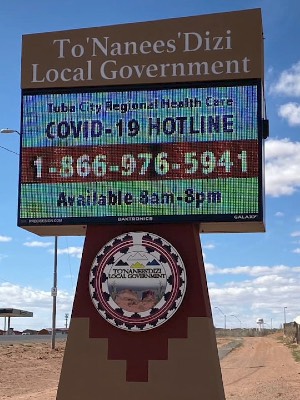
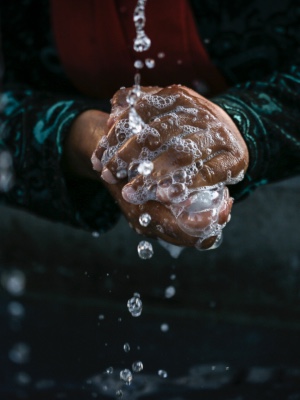
Division of Multicultural Affairs
As public health emergencies intensify around the coronavirus (COVID-19), the Utah Division of Multicultural Affairs is working closely with other state and local agencies to elevate the unique concerns and impacts that the outbreak has on underserved, underrepresented, and systemically marginalized populations. The division wants to ensure that all of communities understand the current recommended precautions to keep Utahns safe and mitigate the risk of exposure.
To further increase the distribution of consistent messaging around the COVID-19 pandemic, the Utah Governor's Office, the Utah Coronavirus Task Force and a combination of community organizations have translated multiple resources in 14-plus languages.
Division of State History
The preservation office within the Division of State History has stayed busy during the COVID-19 pandemic, but it has nothing to do with the virus. Following the 5.7 magnitude earthquake on March 20, the State Historical Preservation. Office has surveyed the damage to historic properties in Salt Lake City and particularly in Magna's historic downtown.
The canceling of mass gatherings and dismissal of schools has forced the division to adapt some of its programs. The Utah History Day competition is holding the state finals online during April. In May, the Utah Archaeological Month will be conducting virtual events instead of hosting regional gathering.
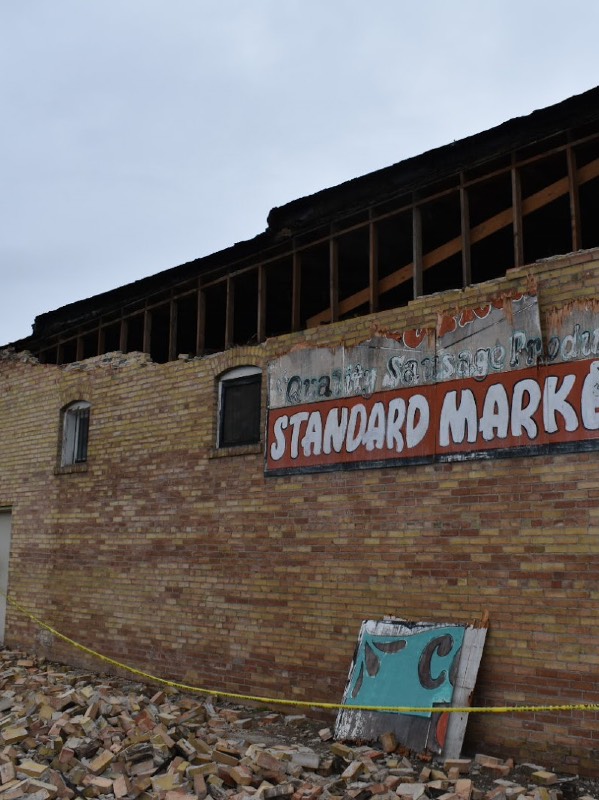
Standard Market in Glendale was damaged by the 5.7 earthquake on March 20
Utah State Library
Although many public libraries have closed their doors during the COVID-19 pandemic, they continue to do everything possible to serve their communities. To support these efforts, the Utah State Library is offering a number of resources to librarians and the public.
Each day, the State Library is streaming "Cabin Fever Storytime" on their Facebook page. All Utah residents can also access Utah's Online Library, which provides access to eBooks and audiobooks, educational resources, and much more. The State Library is also continuing to serve blind patrons throughout this crisis.
STEM Action Center
With hundreds of thousands of Utah students dismissed from school, many parents have suddenly become homeschool principals. This means finding ways to supplement the online learning through their schools with activities that are enriching but also easy to do with supplies found in the home. That is where the STEM Action Center has stepped forward to help.
In today’s climate, sifting through all of the STEM resources available to you might seem overwhelming. Every week, through the STEM In The Home program, the STEM Center will hand-select the top 8 Science, Technology, Engineering and Math resources they find — and they're even throwing in some art resources to help everyone get in touch with your creative side.
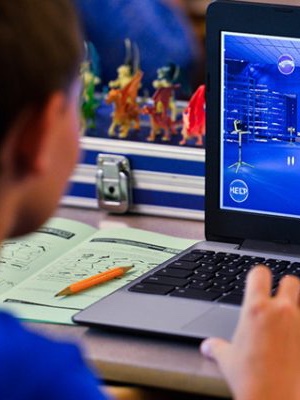
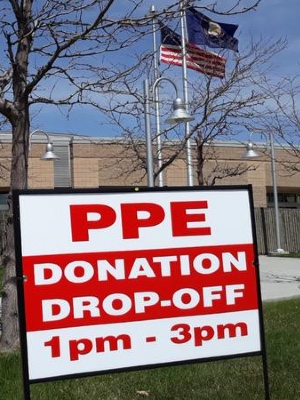
UServeUtah
In coordination with Utah COVID-19 Task Force, UServeUtah is working to address the significant financial risk faced by Utah’s nonprofit organizations. UServeUtah has set up a fund to support Utah nonprofits in maintaining operations as they see an increased need for services and a reduction in volunteering.
UServeUtah is also organizing a donation drive for needed personal protective equipment for healthcare workers and other first-line responders. This includes N95 masks, gloves, surgical gowns, and much more.
